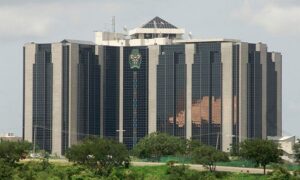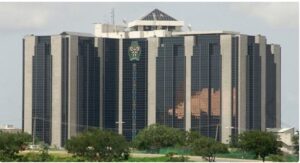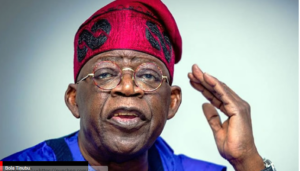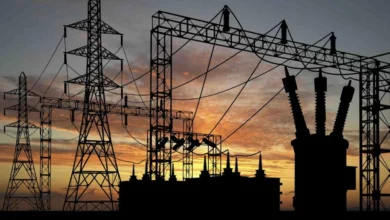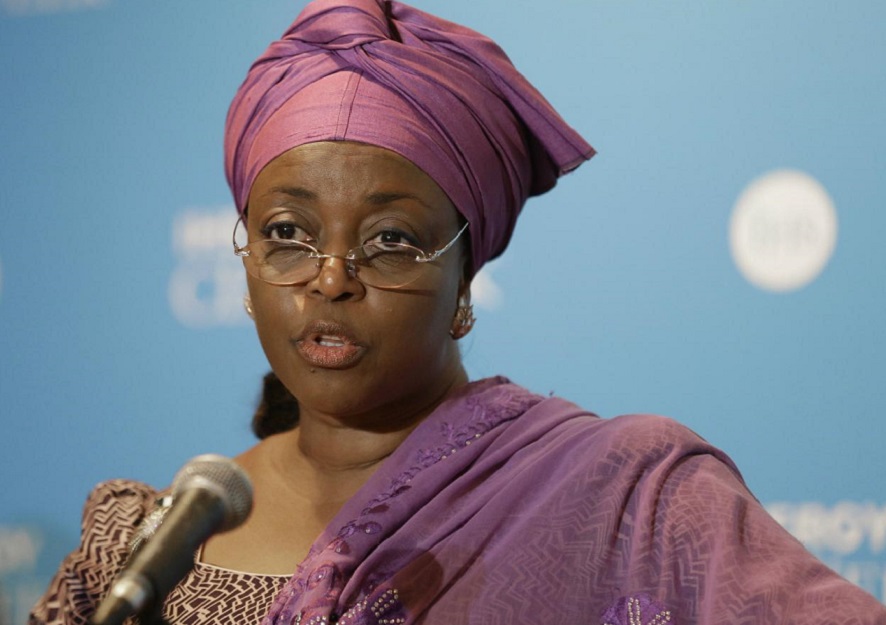Mixed reactions as CBN sledgehammer falls on dormant accounts

The Central Bank of Nigeria has proposed that banks should transfer funds in accounts that have been dormant for up to 10 years into a trust fund account.

This is contained in the recently released exposure draft of guidelines on the Management of Dormant Accounts, Unclaimed Balances and Other Financial Assets in Banks and Other Financial Institutions In Nigeria.
A circular accompanying the exposure draft stated that the guideline was in response to requests from banks and other stakeholders for the CBN to clarify the procedures for the management of dormant and inactive accounts by banks in the country.
The circular, which was signed by the Director of Financial Policy and Regulation Department of the apex bank, Chibuzor Efobi, also called for inputs which should be sent within three weeks.
The draft states that banks and other financial institutions are expected to transfer all unclaimed funds into an Unclaimed Balances Trust Fund pool account, which will be domiciled at the CBN.
CBN stated that dormant and unclaimed accounts are targets of fraudsters, hence the move to warehouse the funds.
Advertisement
Once dormant accounts exceed a six-year period, they shall be reported to the CBN along with efforts made by the obligor bank to locate the owners or their personal representatives.
The apex bank said the balances would be invested in government securities like Treasury Bills and would be returned to the beneficiaries not later than ten days of notice.
CBN said, “The Central Bank of Nigeria shall open and maintain an account earmarked for the purpose of warehousing unclaimed balances in eligible accounts. The account shall be called ‘Unclaimed Balances Trust Fund Pool Account.”
The eligible accounts and financial assets are current, savings and term deposits in local currency; domiciliary accounts; deposits towards the purchase of shares and mutual investments; prepaid card accounts and wallets; proceeds of uncleared and unpresented financial instruments belonging to customers or non-customers of FIs; unclaimed salaries and wages, commissions, and bonuses.
Others include proceeds of stale local and/or foreign currency drafts not presented for payment by beneficiaries; funds received from a correspondent bank without sufficient details as to the rightful beneficiary and/or a recall of funds made to the remitting bank to which the Nigerian bank’s account has not been debited and a judgment debt for which the judgment creditor has not claimed the amount of judgment award.
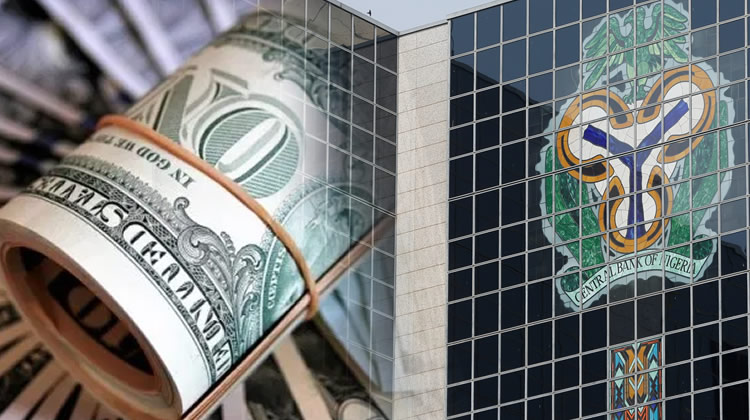
The central bank said any bank or financial institution that contravenes any provision of the new guidelines would attract a penalty of not less than N2,000,000.
It added that failure to comply with CBN’s directive in respect of any infraction would attract a further penalty of N200,000 daily until the directive is complied with or as may be determined by CBN.
The CBN said the objectives of the guidelines are to “Identify dormant accounts/unclaimed balances and financial assets with a view to reuniting them with their beneficial owners; hold the funds in trust for the beneficial owners; standardise the management of dormant accounts/unclaimed balances and financial assets; and establish a standard procedure for reclaim of warehoused funds.”
The CBN also said that it would publish an annual list of the owners of the unclaimed balances that had been transferred to the pool account as well as the procedure for reclaim of warehoused funds.
CBN says: “The continuous maintenance of such accounts results in the accumulation of huge unclaimed balances at the disposal of the financial institutions for which the depositors may not be adequately compensated. In addition, dormant and unclaimed balances are increasingly susceptible to fraudulent transactions or abuse.”

CBN said it would establish a management committee to oversee funds from the accounts and disburse them accordingly. It also stated that a bank account should be deemed dormant if it has not done any transactions for one year.
It said: “A bank account shall be classified as dormant if there has been no customer or depositor-initiated transaction in it for one year after the last customer or depositor-initiated transaction.
“The bank shall institute controls consistent with its precautionary policies, including surveillance procedures and 58-level authorisation. To make such account active, the customer is to provide satisfactory evidence of account ownership, means of identification, and present place of residence.
“Unclaimed funds shall be categorised as Proceeds of stale local and foreign currency drafts not yet presented for payment by beneficiaries. Funds received from a correspondent bank without sufficient details as to the rightful beneficiary and/or a recall of funds made to the remitting bank to which the Nigerian bank’s account had not been debited; and a judgment debt for which the judgment creditor has not claimed the amount of judgment award.”

The bank said it is empowered by the provisions of Section 72 (11) of the bank and other financial institutions to carry out the guideline.
How to activate a dormant account
The account owner can request the bank to reactivate a dormant account. First, the bank would ask them to present several documents, including account number, identification, and other proofs. Then, the person usually has to do some transactions to ensure that the account is reactivated.
Overview of accounts in operation
Checks on the website of NIBSS by The Nation showed that as of December 2021, there were 191.4 million bank accounts in Nigeria, out of which 133.5 million were active.
Meaning there are 57.9 million inactive bank accounts both savings and current in Nigeria.
Over N1trillion up for grabs
From available information, the Federal Government is expected to get over a princely sum of N1trillion from the said funds.
Two years ago when the government first mooted the idea, the Minister of Finance, Budget and National Planning, Mrs Zainab Ahmed had revealed at the time that the figure is still being computed but N850bn is within sight.
“There would be as much as N850 billion. We have to get the exact report from the CBN and then Company’s Registrar to ascertain that so it could be realised into this special trust fund for unclaimed dividends and dormant accounts,” she said.
Litigation imminent
It may be recalled that when in 2021, the Federal Government revealed plans to borrow unclaimed dividends and funds in dormant account balances of Deposit Money Banks, under Part XII of the Companies and Allied Matters Act in the Finance Act, the move elicited reactions from stakeholders and a lawsuit from the Socio-Economic Rights and Accountability Project.

In the suit, SERAP argued that “The Federal Government should not be allowed to borrow Nigerians’ money. Borrowing unclaimed dividends and funds in dormant accounts owned by ordinary Nigerians would negatively affect their right to an adequate standard of living, and access to clean water, quality healthcare and education.”
SERAP said that despite Nigeria’s dwindling oil revenue, growing level of public debt and widespread poverty, public officers including the President, Vice President, governors and their deputies, and members of the National Assembly have refused to cut their emoluments, allowances and security votes. They said that at the same time, millions of Nigerians continue to bear the brunt of mismanagement and corruption.”
The statement also said that joined in the suit as Defendants are: Mr Abubakar Malami SAN, Attorney General of the Federation and Minister of Justice; the Senate President, Ahmad Lawan; the Speaker of House of Representatives, Femi Gbajabiamila; and the Minister of Finance, Budget and National Planning, Ms Zainab Ahmed.
Advertisement
SERAP is also argued that “For there to be a borrower, there must be a lender. The intention to enter into such borrower-lender relationship must be known to both parties. Any other arrangement that allows a borrower to access funds from a lender without the knowledge and express consent of the lender will amount to stealing.”
The suit filed on behalf of SERAP by its lawyers Kolawole Oluwadare and Ms Adelanke Aremo, partly reads, “By the combined reading of section 44(1) of the Nigerian Constitution 1999 (as amended) and Article 14 of the African Charter on Human and Peoples’ Rights, the Federal Government has absolutely no right to borrow Nigerians’ money in the form of their unclaimed dividends and funds in dormant accounts without their knowledge and express consent.”
“The move to borrow Nigerians’ money amounts to unlawful expropriation, as it is neither proportionate nor necessary, especially given the unwillingness or inability of the government to stop systemic and widespread corruption in MDAs, cut waste and stop all leakages in public expenditures. The borrowing is also not in the public interest.”
“Borrowing unclaimed dividends and funds in dormant accounts without due process of law and the knowledge and explicit consent of the owners is arbitrary, and as such, legally and morally unjustifiable.”
“To create a valid trust relationship, there must be an explicit agreement between the setlor and the trustee, for the benefits of the trust beneficiary. There must also be sufficient evidence of the setlor’s intention to create a trust. The relationship cannot be arbitrarily created. It can also not be forced or assumed unilaterally, which is exactly what the Federal Government is pushing to do in this case.”
Divergent over policy
Expectedly, some industry watchers say the policy will dampen investors’ confidence and create uncertainty in the sector.
A onetime Security and Exchange Commission commissioner, Charles Udora, raised some underlying issues on the policy.
Advertisement
“Are the dormant account balances limited to any specific amount or will the borrowing take everything in all dormant accounts in all deposit money banks?
“Remember that some may have dormant accounts resulting from being sent out for a period on official assignments or have travelled for studies, etc. They return to the country to discover that their entire savings have been cleared via ‘FGN borrowing from dormant accounts.’ What will such persons do to continue their lives?” he asked.
He also raised concerns about the one-sided contract the government will be entering with these account holders.
“With whom will the FGN be entering into the borrowing contract in view or the state of the Law of Contract in Nigeria, especially in terms of capacity to enter into a valid contract, consideration, parties to the contract, etc? With whom did the FGN negotiate the ‘borrowing’?
“Who is representing the interest of the investors whose dividends will be borrowed? What are the terms and conditions of the borrowing and who negotiated them? How will the borrower pay back principal and interest? What will be the effect of the 12 years Statute Bar on Unclaimed Dividends borrowed by the FGN if the borrowed funds are not repaid within the 12-year window from the declaration of dividends to repayment by the FGN? Who is going to hold FGN accountable?” Mr Udora asked.
Udora’s concerns are not new, however, as before the bill was passed by the National Assembly, federal lawmakers, at a public hearing, expressed concerns over drawing funds from various dormant accounts and unclaimed dividends.
Their concern was hinged on fund availability if the rightful owners of the monies showed up.
During the hearing two years ago, the Chairman of the Senate Committee on Finance, Senator Solomon Adeola, posed the question to the Minister of Finance, Budget and Planning.
“We have funds sitting in the registrars and funds sitting in the banks which are not helpful to the system,” the minister, Mrs Ahmed, said.
Advertisement
“The government is just trying to make use of the funds in the interest of Nigerians because there is no point having idle funds in the banks whereas government needs money to carry out many developmental projects.”
The minister also acknowledged the concerns of Nigerians about the government’s plans.
“This is well-intended,” she said. “Some shareholders may not be happy. Certainly, no regulator is happy. The United Kingdom also has a provision that dividends not claimed after four years, revert to the companies that issued them.”
She said that the Debt Management Office issues securities to the registrars in case owners of such unclaimed dividends or deposit in dormant accounts come forward to claim their entitlement.
“It is possible that a different arrangement is in place in other jurisdictions but I want to state that in the amended CAMA, there is a provision that had modified the section that mandates the registrars to return unclaimed dividends after 12 years to the companies that paid the dividends in the first instance. Rather than the companies to take back the money and redistribute, the government wanted to manage the funds,” she said.
She said the fund managers that would be set up would give details of the procedure of how the funds would be managed.
However, representatives of the Independent Shareholders Association of Nigeria, disagreed, saying that unclaimed dividends belong to shareholders, not the government.
Unclaimed dividends, they said, should never be entrusted in the hands of government but reverted to the company that issued them.
Mr Udora, mentioned earlier, on the other hand, said the borrowing strategy, process and procedures have consequences on the larger economy of the country.
“The greatest consequence of this type of ‘borrowing’ is the potential to trigger panic in the investment community and create an atmosphere of flight to safety which is another acronym for a possible run on banks with obvious consequences,” he said.
Advertisement
He further noted that there is enough tension already caused by the COVID-19 pandemic, coupled with the localized threats to the nation’s economy because of insecurity, recession, unemployment, high inflation and “seemingly uncontrollable foreign exchange rates with very little hope of any significant improvement in our foreign exchange receipts.”
He said one of the immediate consequences of the implementation of the borrowing plan is the “unforeseeable further loss of value of the Nigerian Naira.”
“This will result from the loss of faith and confidence in the currency and a possible rush by investors to change the store of value of their assets (both cash and non-cash).
“This action will put further pressure on the already stressed state of our foreign reserves. It will also panic foreign investors to begin to divest in anticipation of a bearish market upon commencement of the borrowing plan”, he noted.
He also said public limited companies will begin holding back on dividend declaration as a means of retaining their funds.
“This action on its own will discourage investors and inflows into the capital market will drop. All these events will end up affecting trade, business and ultimately the taxes of all types may see a decline,” he said.
The Nation

